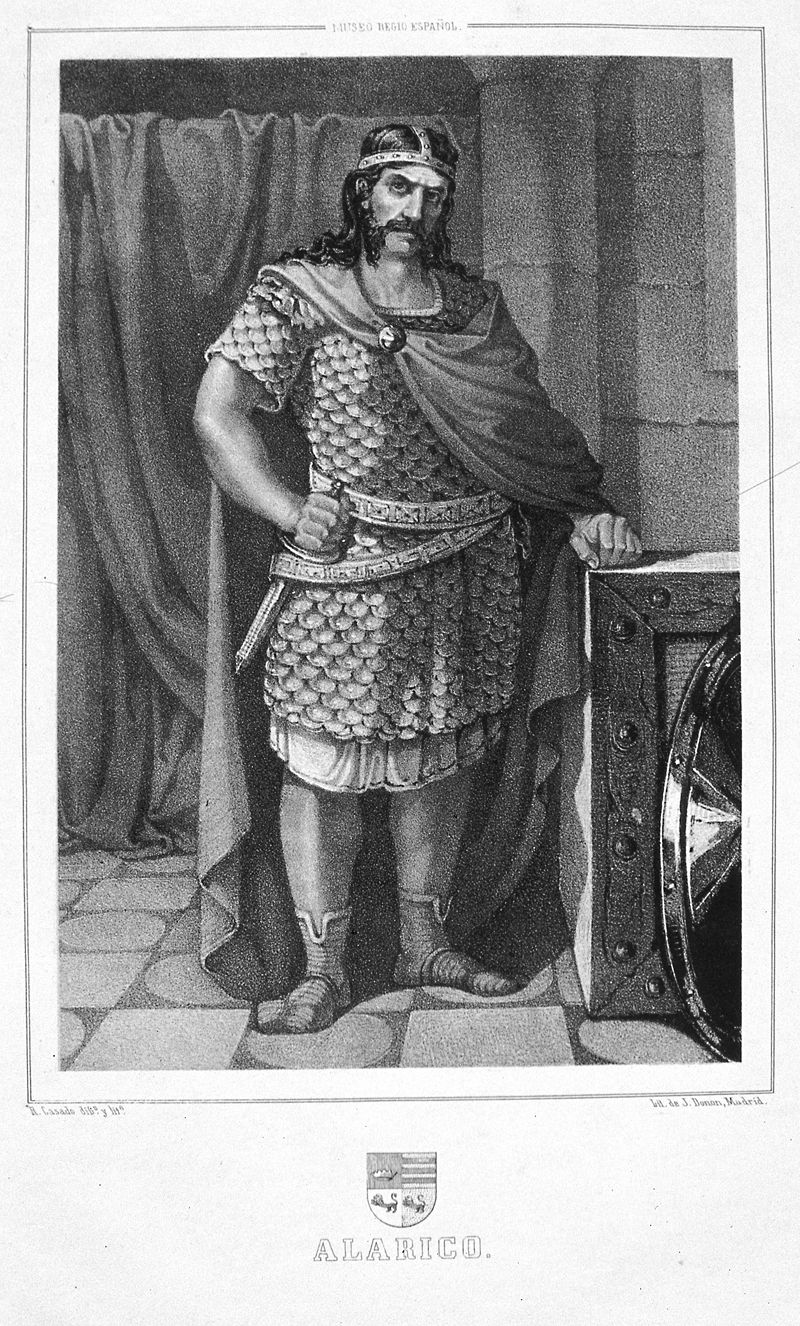It happened today - February 2, 2016
 It is very striking, I find, that on this date in history, Feb. 2 of 506 A.D., the Visigoth Alaric II promulgated a Roman legal code. And I would, you may say. But bear with me while I attack Italy and perish in combat with Clovis.
It is very striking, I find, that on this date in history, Feb. 2 of 506 A.D., the Visigoth Alaric II promulgated a Roman legal code. And I would, you may say. But bear with me while I attack Italy and perish in combat with Clovis.
No, sorry, that wasn’t me. It was Alaric II. The chronicles say little about him and what they do say pretty much fits under the heading of “stereotypes about Visigoths”. Except that generally you’d expect them to be burning Roman legal codes not writing them.
To some extent this sort of attitude stems from unfair preconceptions about the “Dark Ages”, so-called. OK, to be fair, groups like the Vandals behaved in such a way that their name lingers on like a foul stench long after they vanished. But many of these tribes were trying to become or take over the Roman Empire not smash it into marble dust. And if they didn’t always succeed, well, the Roman Empire wasn’t exactly succeeding by that point either.
For all that, it cast a remarkably long shadow. There was something about Rome that went beyond its military conquests and its most glorious emperors like Augustus or its world-class weirdos like Elagabalus. And that something was the rule of law.
I don’t just mean rule by law here. Lots of civilizations, especially complicated ones, did everything by elaborate systems of writing and bureaucratic command and control. There were a lot of things you couldn’t do any other way. But many of them were things you shouldn’t do at all, from the rigid centralization of Imperial Spain to that reductio ad absurdum of all Internet controversies, the Holocaust.
What Rome had was the rule of law, that is, a dependable, relatively stable, procedurally consistent system that aimed to protect people’s rights. Those rights were not what we might wish, and the mechanisms of government were far from ideal, both in the Republic that collapsed and in the Empire that, a long time later, also collapsed. It wasn’t until “Civis Romanus sum” met Christianity and British liberty that you really got the system we rightly cherish, whatever its alarming current discontents. But there was something about Rome that was conducive to the dignity of the individual, something that somehow did (as Chesterton argued) prepare the way for Christianity’s far more powerful emphasis on the same crucial point.
Indeed there’s a story in Acts 22 about the Apostle Paul, about to undergo some grisly torture-interrogation in Jerusalem, spoke the magic words “I am a Roman citizen” and suddenly the mechanisms of law protected him even though he was accused of being a trouble-maker which from the point of view of the authorities he certainly was.
We seem to have wandered a long way from the obscure and hapless Alaric II. But we haven’t, because the majesty of Rome as I say lay not just in its conquests, its treasures, its temples and colosseums, or its legions. It lay in the idea of somehow putting all that force and money behind fairness, of creating a civilization that did not just flourish but deserved to.
It took a pretty barbaric barbarian to gallop up to that and just start smashing it instead of falling under its influence. Even Alaric II sort of got the idea, which is why he created a legal code based on the Roman one to govern the non-Visigothic members of his kingdom in a manner that was not just effective but fair, based on some principle of justice higher than “grovel or die”. And that’s why the Dark Ages represented a struggle to keep the spirit of Rome alive not to snuff it out, a struggle that on balance succeeded.
As for Alaric II, well, he didn’t. Can’t win ‘em all.